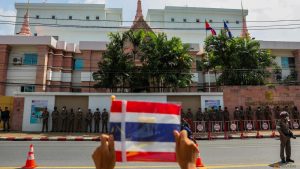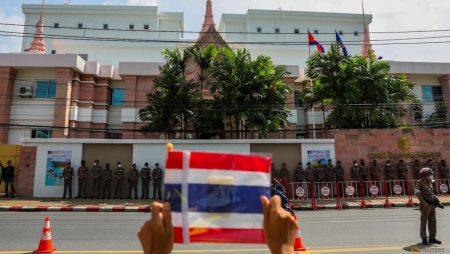The emergence of DeepSeek-V3, a large language model (LLM) developed by a small Hangzhou-based startup, has sent ripples through the US tech industry, sparking a debate about the efficacy of current export controls on advanced computing hardware. DeepSeek, founded in 2023 amidst the burgeoning Chinese AI landscape, garnered attention after researchers claimed their model, trained using Nvidia H800 chips, achieved performance comparable to, or even exceeding, leading US models, all while incurring a training cost of less than US$6 million. This claim, though subsequently contested, highlighted the potential for developing high-performing LLMs using hardware less advanced than the top-tier Nvidia A100 and H100 chips, which are subject to US export restrictions aimed at curbing China’s AI development.
The controversy revolves around the type of hardware employed in DeepSeek-V3’s training process. DeepSeek researchers initially asserted their use of Nvidia H800 chips, a less powerful variant than the A100 and H100, suggesting that cutting-edge performance could be achieved without relying on the most advanced, and restricted, hardware. This assertion, if proven accurate, would undermine the rationale behind the export controls, designed to limit China’s access to the computational resources deemed essential for developing cutting-edge AI. The relatively low training cost further fuels the debate, implying that significant advancements in AI can be achieved with comparatively modest financial investments, potentially leveling the playing field for smaller companies and countries with limited resources.
The details surrounding DeepSeek and its development process remain shrouded in mystery, adding another layer of complexity to the unfolding narrative. Founded in 2023, the same year Baidu unveiled Ernie Bot, China’s first major LLM, DeepSeek emerged from relative obscurity to challenge the established players in the AI arena. Despite the influx of Chinese tech companies venturing into the LLM space, DeepSeek distinguishes itself as the first to receive accolades from the US tech community, raising questions about the company’s technological prowess and the strategies employed to achieve such rapid progress. The limited information available about DeepSeek, coupled with the contentious claims regarding its training hardware and costs, has intensified scrutiny and fueled speculation within the industry.
DeepSeek’s sudden prominence has brought the debate over technology export controls into sharp focus. US tech executives, observing the potential for achieving near-parity performance with less advanced hardware, are questioning the long-term effectiveness of these restrictions. The argument hinges on the possibility that restricting access to the most advanced chips may not significantly hinder the progress of AI development in other countries, particularly if comparable results can be achieved using more readily available hardware. This raises concerns about the potential for unintended consequences, such as driving innovation elsewhere and inadvertently strengthening competitors while hindering US companies’ access to global markets.
The DeepSeek episode also underscores the rapidly evolving nature of the AI landscape and the challenges in regulating this dynamic field. The rapid pace of innovation, coupled with the decreasing cost of computing power, makes it increasingly difficult to maintain a technological advantage through export controls alone. Furthermore, the globalized nature of the technology industry makes it challenging to effectively enforce such restrictions, particularly when alternative hardware options become available. This necessitates a more nuanced approach to regulating AI development, one that considers the evolving technological landscape and the potential for innovation to circumvent restrictive measures.
The emergence of DeepSeek-V3 has served as a wake-up call for the US tech industry, prompting a reevaluation of the effectiveness of current export control strategies in the context of rapidly advancing AI technology. The debate surrounding DeepSeek’s development highlights the complexities of balancing national security interests with the need to foster innovation and maintain a competitive edge in the global technology landscape. Moving forward, a more comprehensive and adaptable approach to regulating AI development will be crucial, one that considers the evolving technological landscape, the potential for circumvention, and the broader implications for global technological leadership.










